Doctor en Ciencia Animal, con énfasis en genética cuantitativa y modelación. Formación profesional en Zootecnia. Profesor Investigador del grupo de investigación Ciencia Animal en la Facultad de Ciencias Agropecuarias de la Universidad de Ciencias Aplicadas y Ambientales U.D.C.A. Investigación en metodologías de genética cuantitativa, de poblaciones y el uso de información genómica para programas de mejoramiento genético de especies domésticas, principalmente en bovinos, peces y especies menores. Dirección de proyectos de investigación a escala nacional con la participación de instituciones educativas y de investigación como la Universidad Nacional de Colombia, Universidad de Antioquia, Universidad de Massey (Nueva Zelanda) y la Corporación Colombiana de Investigación Agropecuaria AGROSAVIA. Consultoría y asesoría a la asociación de criadores de ganado Simmental y Simbrah de Colombia (Asosimmental) a través de análisis de variabilidad genética, patrones de ancestría, evaluación genética con inclusión de información genómica y el desarrollo de índices de selección soportado en metodologías bioeconómicas para optimizar el progreso genético y económico de características asociadas a producción de carne y leche.
GRUPOS DE INVESTIGACIÓN: CIENCIA ANIMAL
LÍNEAS DE INVESTIGACIÓN: Salud Humana y Animal y Sostenibilidad Ambiental
LINEAS DE TRABAJO: Genética Cuantitativa, Modelación y Estadística, Selección Genómica, Genética de Poblaciones.
PRODUCTOS DESTACADOS
Genetic evaluations in cattle using the single-step genomic best linear unbiased predictor
Fecha de publicación: 01/01/2020
Conventional genetic evaluations have been framed on estimated breeding values from equation systems of mixed models that consider simultaneously random and fixed effects. Recently, the development in genome sequencing technologies has allowed obtaining genomic information to include in genetic evaluations in order to increase the accuracy and genetic progress, and decrease the generation interval. The single-step best linear unbiased predictor is a methodology developed in the last years and accepts including genomic information replacing the genomic relationship matrix by a matrix that combines relationship by pedigree, and the genomic relationship of a genotyped population, allowing the estimation of breeding values for non-genotyped animals. The aim of this review article was to describe the methodology and its recent progress, as well as to know some of the strategies that could be used when the number of genotyped animals is low.
Más información ⇨
- « Anterior
- 1
- …
- 5
- 6
- 7
- 8
- 9
- …
- 11
- Siguiente »

